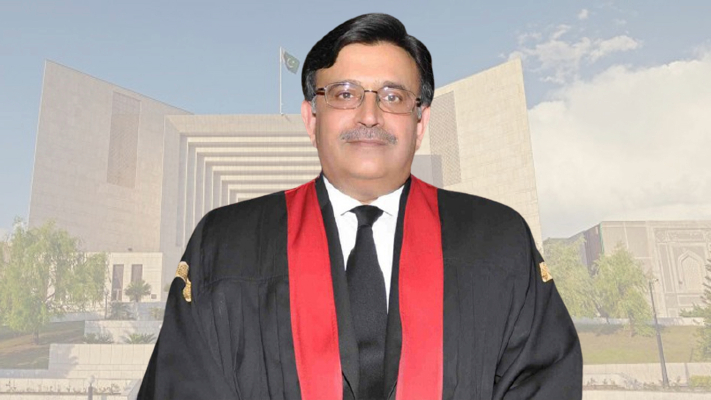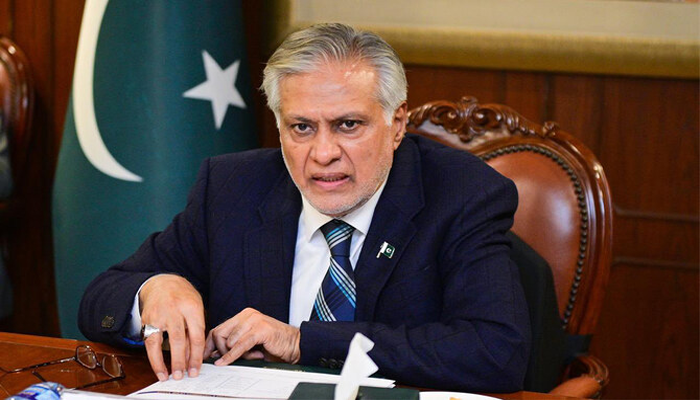The Supreme Court of Pakistan is showing its muscles by giving decisions that may affect the interests of the powerful circles.
In a recent decision, a five-judge bench led by Justice Ijazul Ahsan declared a 56-year-old law to try civilians in military courts as unconstitutional. The bench also held that the civilians, who were in the custody of the military on the charges of attacking its installations, would be tried under the ordinary criminal law.
The interim federal government is planning to move an appeal against the larger bench's order.
The Supreme Court is also adjudicating some significant matters -- especially the implementation of Faizabad sit-in judgment. The federal government will submit a report on the implementation of the court's judgment in the Faizabad sit-in case on Friday.
The Supreme Court has also declared the professional tax levied by the Cantonment Board as unconstitutional. The CJP questioned the rationale behind the construction of shopping malls on land designated for military purposes, expressing that it was originally intended for non-commercial uses.
The Supreme Court has also quashed an FIR filed against the news director of a private TV news channel in connection with a sedition case involving former PM's aide, Shahbaz Gill.
The Supreme Court has observed that such misuse of authority created a sense of fear and insecurity in the society that caused hatred against State institutions.
When citizens are put in fear, they cannot perform their functions freely, which amounts to preventing them from contributing towards the society in accordance with the Constitution, law and as per their conscience.
The court observed in such a hostile atmosphere, the media could not perform its functions freely; rather it would undermine the freedom of speech, expression, and access to information of the citizens, as guaranteed by the Constitution, resulting into mistrust in the institutions.
“A democratic government is considered to be by the people, of the people and for the people. It must, therefore, develop an atmosphere of tolerance, to promote political and social justice; to create a habit of listening to healthy criticism, which is the beauty of democracy,” the judgment noted.
“Thus, the government must accept the will of the people, instead of considering its critics and political opponents as enemy of the State, to avert hatred and mistrust of citizens upon the institutions, by refraining itself from misusing the power and authority and to avoid malicious, baseless and frivolous prosecution against its citizens," it added.









